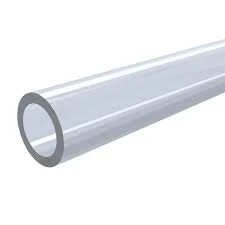dec . 17, 2024 15:26 Back to list
hdpe sprinkler pipe
Understanding HDPE Sprinkler Pipes A Sustainable Solution for Modern Irrigation
In today's world, efficient water management is paramount, especially in agriculture and landscaping. One of the most effective tools for achieving this is the use of High-Density Polyethylene (HDPE) sprinkler pipes. These pipes have gained recognition for their durability, resistance, and adaptability, making them an ideal choice for irrigation systems.
HDPE is a thermoplastic made from petroleum. It is known for its high strength-to-density ratio, which means that it can withstand significant pressure and environmental stressors while remaining lightweight. These properties make HDPE tubes particularly suitable for sprinkler irrigation, where the pipes are subject to varying water pressures and external conditions.
Advantages of HDPE Sprinkler Pipes
1. Durability HDPE pipes are remarkably resilient. They resist corrosion, wear, and impact far better than traditional materials such as metal or PVC. This durability translates into longer service life and lower maintenance costs, making them a cost-effective choice in the long run.
2. Flexibility Unlike rigid piping options, HDPE pipes are flexible and can be easily installed in curved or uneven terrains. This feature allows for more efficient coverage of water across various landscapes, which is especially beneficial in irregularly shaped fields.
3. Chemical Resistance HDPE pipes can withstand a wide range of chemical environments without degrading. This is particularly advantageous in agricultural applications, where fertilizers and pesticides are often used. The resistance to chemical interactions ensures that the water quality is maintained, promoting healthier crops and reducing the risk of contamination.
hdpe sprinkler pipe

4. Sustainable Choice An important aspect of HDPE is that it is 100% recyclable. This characteristic aligns with the growing demand for sustainable practices in agriculture and landscaping. Using recyclable materials not only conserves resources but also minimizes waste in landfills.
5. Efficiency in Water Delivery HDPE sprinkler pipes enable precise water application, which is crucial in optimizing water usage. Effective irrigation reduces water loss due to evaporation or runoff, ensuring that plants receive the right amount of moisture without wastage. This efficiency is especially critical in regions facing water scarcity.
Installation and Maintenance Considerations
While the installation of HDPE pipes is generally straightforward, some factors need consideration. Proper trenching techniques must be employed to prevent damage during installation. Moreover, fittings and joints should be compatible to ensure a leak-free connection, as leaks can lead to significant water loss.
Maintenance of HDPE sprinkler systems is minimal compared to other piping options. Routine checks for leaks and system efficiency are recommended, but the inherent durability of HDPE means that replacement is infrequently necessary.
Conclusion
In summary, HDPE sprinkler pipes represent a modern solution to the challenges faced in irrigation systems. Their strength, flexibility, chemical resistance, and eco-friendliness set them apart from traditional piping materials. As the world continues to prioritize water conservation and sustainable agricultural practices, HDPE sprinkler pipes will play a pivotal role in ensuring efficient water management and crop production. Embracing such innovative solutions is essential for a sustainable future, where agriculture can thrive despite the challenges posed by climate change and resource limitations. With their numerous benefits, HDPE pipes are undoubtedly a wise investment for anyone looking to enhance their irrigation system and promote sustainable practices in farming and landscaping.
-
Durable Glossy PVC Rigid Sheet | Premium High-Shine Panels
NewsAug.26,2025
-
Durable PP Rigid Sheet: Lightweight, Chemical Resistant Solutions
NewsAug.21,2025
-
PVC Grey Sheet for Extraction: Chemical Resistant & Durable
NewsAug.19,2025
-
Durable PVC Pipe Fittings for Plumbing & Irrigation Needs
NewsAug.18,2025
-
HDPE Steel Belt Reinforced Spiral Corrugated Pipe | High Strength
NewsAug.17,2025
-
HDPE Pipe Fittings: Durable, Leak-Proof Solutions
NewsAug.16,2025

